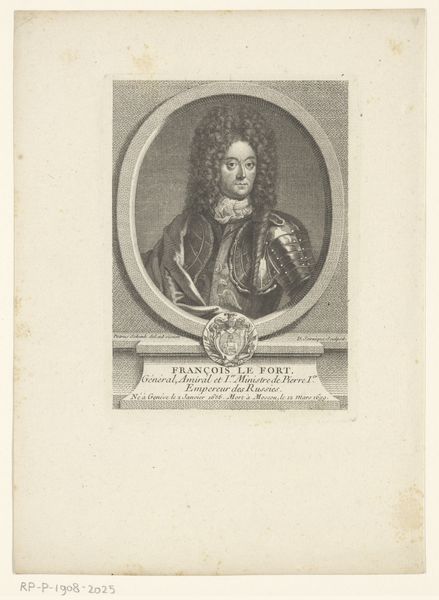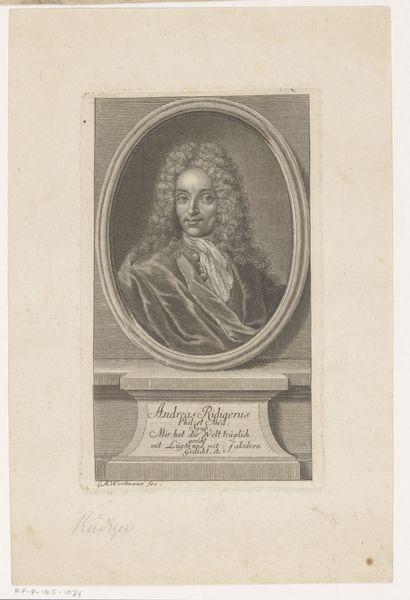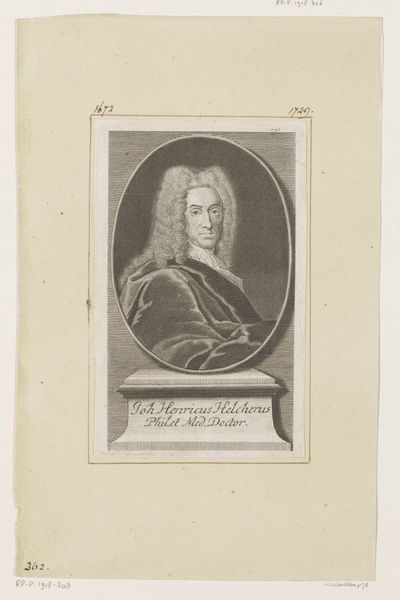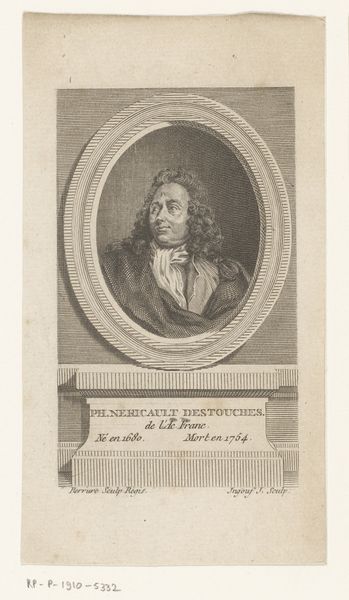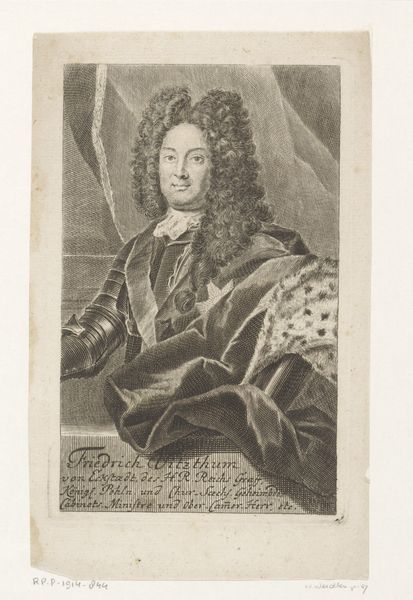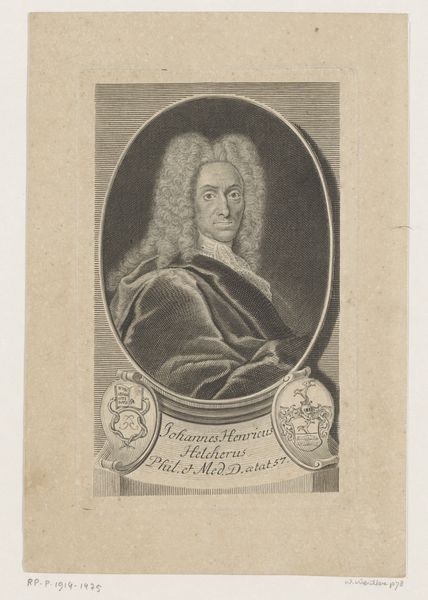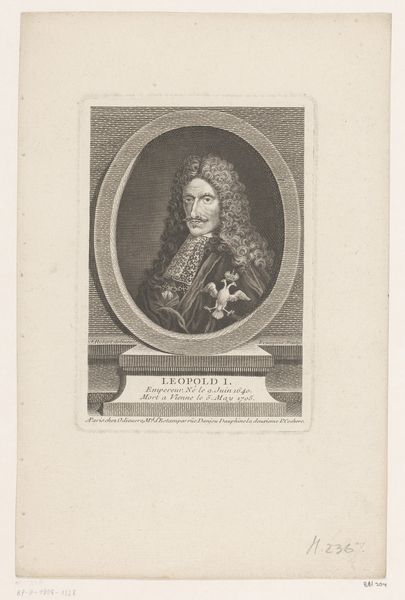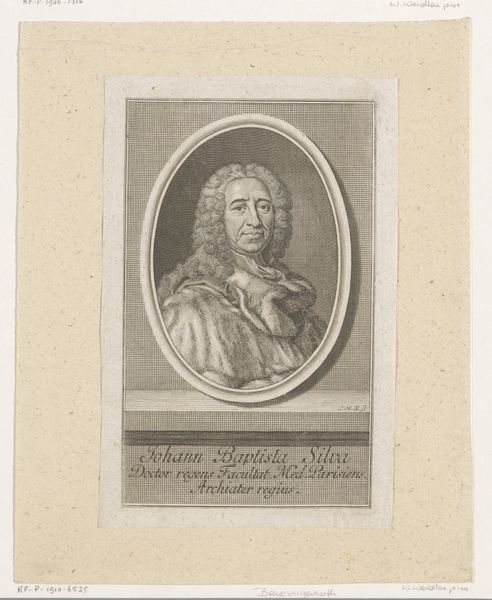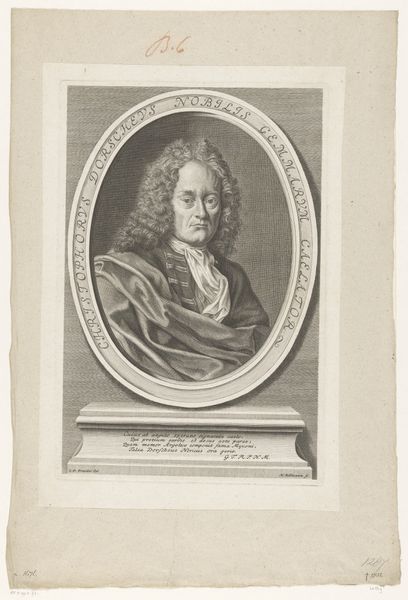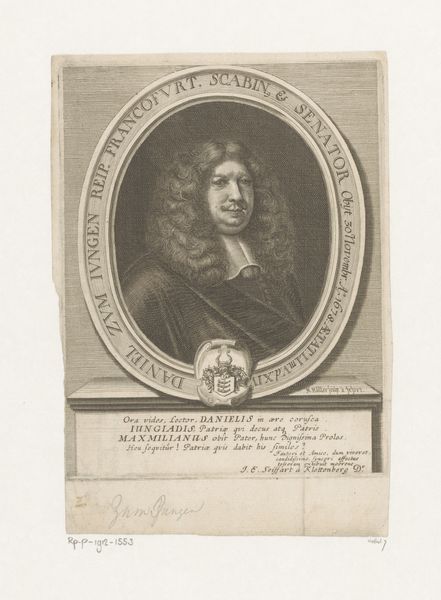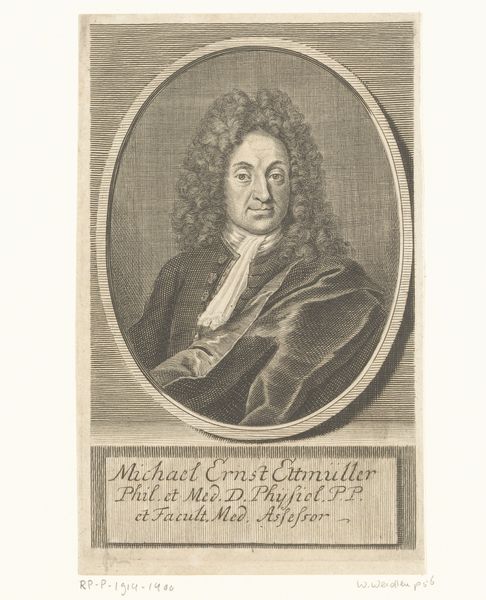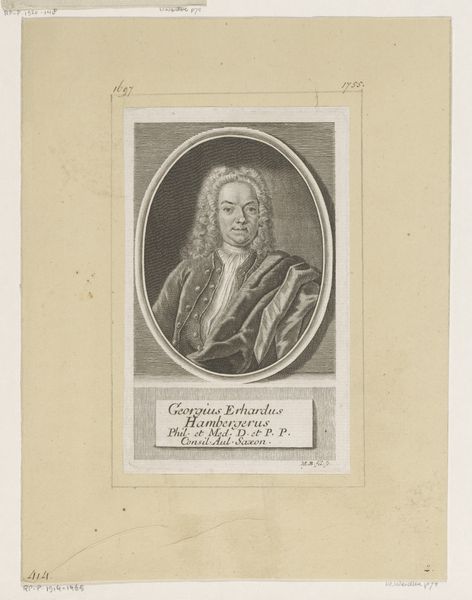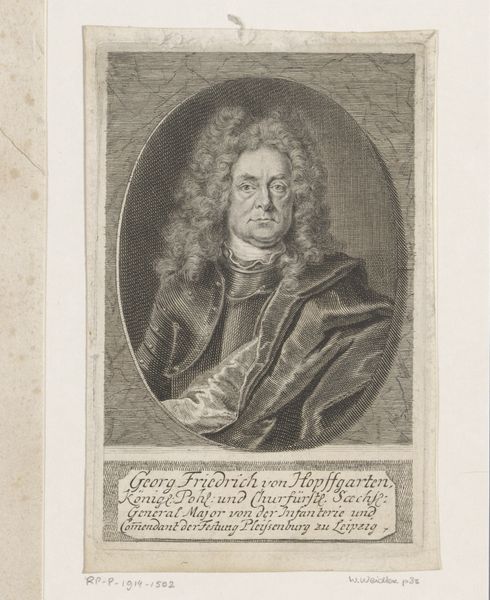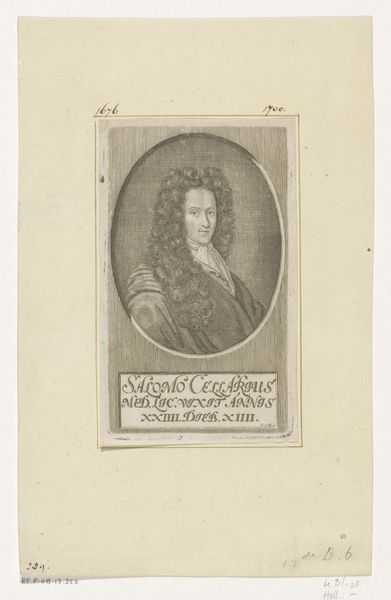
print, paper, engraving
#
portrait
#
baroque
# print
#
old engraving style
#
paper
#
engraving
Dimensions: height 145 mm, width 96 mm
Copyright: Rijks Museum: Open Domain
Editor: This is an engraving from 1722, "Portret van Eucharius Gottlieb Rinck" by Martin Bernigeroth, currently residing in the Rijksmuseum. The man looks incredibly self-important. How does a piece like this reflect the cultural attitudes of its time? Curator: Good question! These formal portraits, particularly prints circulated publicly, reinforced social hierarchies. What do you notice about his clothing and wig? Editor: The wig is huge and elaborate. And he is wearing what seems like a very luxurious cloak. Curator: Exactly. These weren't just aesthetic choices; they signaled status, wealth, and authority. Consider who Rinck was—a professor of law. Portraits like these solidified his image, but they also bolstered the University's and legal system's perceived legitimacy through association. Who, exactly, did portraits serve back then? Editor: So the print isn’t just about the individual, but a larger power structure? It makes me think about how images even today can carry those sorts of loaded messages about who holds authority and why. Curator: Precisely! These prints are fascinating documents reflecting power dynamics, not only in their subject matter but in their creation and dissemination within society. Hopefully next time you consider portraiture you will now think of how it shapes our social and political perception. Editor: It's true; now I understand the power these pieces possessed as almost official announcements, that help establish people’s importance within social roles, like in universities. That's amazing, thanks!
Comments
No comments
Be the first to comment and join the conversation on the ultimate creative platform.
